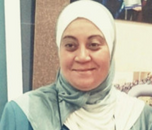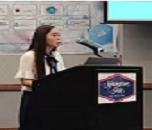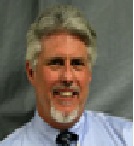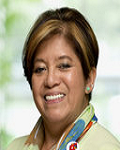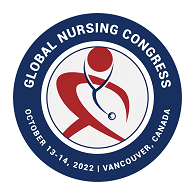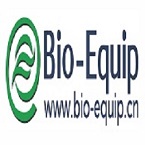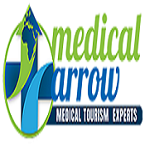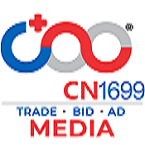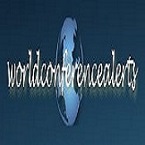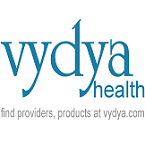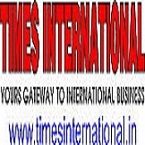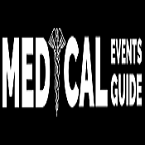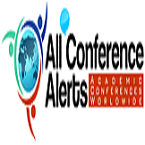Sessions and Tracks
Track 1: Nursing and Health Care
Nurses have historically provided excellent treatment to the general people. Professional respect in the medical community, on the other hand, was earned via many years of lobbying, organisation, and, most crucially, academic advancement. Nurses have campaigned for increased recognition and autonomy, and today command considerably more respect and autonomy, enjoying a more collaborative relationship with physicians and other healthcare professionals, than they had 70 years ago (despite their many tasks).
We need to look at what a registered nurse performs to understand why nurses are so vital in today's healthcare, from the relationships they develop with patients to the ways they collaborate with other practitioners. Take a moment to recall a recent doctor's appointment. A nurse was often the first person you saw after checking in at the front desk. He or she most likely made small conversation in between asking about your health and checked your vitals. That small conversation, on the other hand, was not merely to make you feel at ease or to fill the silence.
Track 2: Women Health and Nursing care
It is critical to recognise that women's health difficulties are distinct and distinct from men's health issues. Advances are being made in the diagnosis and treatment of women's diseases. In the allocation of research and healthcare funds, it is critical to pay close attention to health policy as it relates to women's health.
Women's health issues involve a wide range of topics that span a woman's lifetime, including health promotion, disease prevention, reproductive health, health maintenance, and disease management. Vaccinations, a balanced diet and exercise routine, calcium consumption, the prevention of sexually transmitted infections (STIs), and the avoidance of intimate partner abuse are all examples of health promotion and disease prevention that affect people of all ages.
Track 3: Nursing Career and Education
Nursing has traditionally been in great demand, but ageing baby boomers, health-care reform, and medical advancements have pushed demand even higher. Registered nurses, licenced practical and vocational nurses, and advanced practise nurses, such as nurse practitioners and clinical nursing specialists, are expected to outperform the national average in the decade leading up to 2022, according to the Bureau of Labour Statistics (BLS).
Informatics nurse specialists take this tech-career integration to a whole new level. All nurses working in today's high-tech world must be familiar with computers and a range of programmes, but informatics nurse specialists take this tech-career integration to a whole new level. These individuals assist in the design, development, and modification of software and systems in order to improve efficiency and patient outcomes. To put it another way, informatics nurses ensure that the technology used by other nurses is practical, dependable, and safe. Informatics nursing is also in such great demand that O*NET has classified it as a "bright outlook" employment with a growth rate nearly twice that of the national average for all fields between 2012 and 2022.
Track 4: Healthcare and Pharmaceuticals
Pharmaceutical and healthcare industries are among the most scrutinised and analysed businesses today. Profitability has been faltering in recent years, as many companies have been unable to maintain the fast growth that was once the industry's hallmark. Some of the industry's key issues include dwindling pipelines, rising generic competition, and ballooning operating and marketing expenses.
In the last decade, the healthcare industry has been characterised by rising costs, global rivalry generated by medical tourism and telemedicine, a growing supply-demand imbalance, and increased customer demands. The system is being driven by demand, which is reversing the usual paradigm of many health systems attempting to manage costs by restricting supply.
Our global network of pharmaceutical and healthcare industry experts provides assurance, tax, and business advising services based on a deep understanding of the industry and the forces that shape it. We've committed to learning about the dynamics that shape these industries and designing and delivering solutions that assist our clients meet their financial, operational, and strategic goals. We leverage our unrivalled network of resources on every project to develop effective tactics that help you win in a competitive and ever-changing industry.
Track 5: Gynaecology and Obstetrics Nursing
The OB/GYN clinical rotation in women's health provides you with the chance to learn about common and uncommon gynaecologic and obstetric disorders. When a patient appears with a primary complaint, you should start thinking about the differential diagnosis right away, but it's also beneficial to identify people as premenopausal or postmenopausal right away. A 20-year-differential old's diagnosis for vaginal bleeding will be significantly different from a 60-year- old's.
Always keep in mind that a patient's diagnosis could be fatal. There are few etiologies that can induce imminent mortality in a patient with vaginal discharge, but an ectopic pregnancy or endometrial cancer can most certainly cause death in a patient with irregular vaginal bleeding. It's also a decent rule of thumb to assume that all women of reproductive age (about 12 to 45) are pregnant until proven otherwise.
Track 6: Health economics and Nutrition
There is increasing demand to construct sustainable and resilient food systems as global temperatures rise and climate-related catastrophes become more common. It is obvious that how we produce and consume food has ramifications not only for human health, but also for the health of animals and our common environment. This collaborative, multi-sectoral, and trans disciplinary approach is known as 'One Health,' and it attempts to achieve optimal health outcomes while acknowledging the interconnections between humans, animals, plants, soil, and the world. A growing number of people are aligning their own food and lifestyle choices for sustainable living as a strategy to impact change as a result of concern for the planet's future.
Is there a demand for health improvements if health care is only demanded to improve health? Health might be considered a good, if not a basic commodity, that is critical to people's well-being, resulting in a need for improvements. Health shares certain features with more traditional goods: it can be made, it is desired and people are prepared to pay for improvements in it, and it is scarce in comparison to people's desires for it. However, it does not have a one-to-one relationship with the demand for health care since, while health is influenced by health care, it is also influenced by many other factors and impacts all areas of wellbeing, not only health care. As a nice example,
Track 7: Psychological Effect of COVID -19 on Nursing
COVID-19 causes anxiety in patients, non-patients, caregivers, and healthcare professionals because of its infectious potential, the uncertainty of symptoms and prognosis, and government restrictions, all of which lead to dysfunction in social, occupational, psychological, familial, economic, and other domains. Rumors, a deluge of information in the media and on the internet, changes in everyday life and routine, economic instability, discrimination, stigma, a sense of isolation, and guilt all add to the anxiety. Patients and their families must deal with the last three factors.
Anyone who is upset or has the symptoms listed above should seek help from a mental health professional such as a psychologist or psychiatrist. Being conscious, admitting, and understanding that one has psychological issues is the first and most important step in therapy. Talking to a professional, living a routine and healthy lifestyle, eating a good food, avoiding tobacco and narcotics, and engaging in creative hobbies such as music, singing, writing, painting, and dance can all help you cope with anxiety. Restriction or blocking access to electronic media is appropriate if one is extremely vulnerable and distressed. The data must be acquired from trustworthy sources.
Track 8: Health Care and Maternal Child Health
Every day, more than 500 women and girls die in emergency rooms as a result of complications related to pregnancy and childbirth (UNFPA, 2018, p. 3). In 2017, an estimated 535 million children (almost one in every four children on the planet) resided in nations affected by natural disasters (UNICEF, 2017). This study includes some critical technical resources as well as examples of organisations working in maternity, neonatal, and child health (MNCH) in emergency circumstances.
In humanitarian catastrophes, organisations working in maternity, neonatal, and child health (MNCH) mostly use the Minimum Initial Service Package (MISP) produced by the Inter-Agency Working Group on Reproductive Health in Crises (IAWG). At the outset of an emergency, programmes focus on providing a range of basic health care, which are later expanded upon by adding more extensive services.
Examples of programming for moving from the emergency to the post-emergency period and rebuilding health systems were more difficult to find. To improve maternal and newborn outcomes, a great number of the organisations assessed for this report emphasised the need of highly trained staff, particularly experienced birth attendants. Only Management Sciences for Health and International Medical Corps, on the other hand, had well-defined midwife training programmes.
Track 9: Cardiac Nursing
Cardiac nursing is a specialisation that focuses on preventing and treating heart diseases. Cardiac nurses work in both inpatient and outpatient settings, caring for medical and surgical patients and guiding them through acute sickness or chronic disease management. Patients with heart disease are cared for by cardiovascular nurses, who work with their families to improve and maintain their health.
"Cardiovascular nursing is integrated into every area of nursing because all of our patients have hearts," explains Joanna Dagenais, MSN, RN, CCRN-K, clinical education director for the Preventive Cardiovascular Nurses Association (PCNA). Cardiovascular nurses inform patients about their illness and the lifestyle modifications that are necessary for rehabilitation and long-term health. During a protracted hospital stay, they might act as a point person, offering assessments and updates to physicians, patients, and families.
A typical day for a cardiovascular nurse starts with an update on the patients who will be under their care. They'll then examine the patient's vital signs and test results to see if they require immediate medical attention. They'll keep an eye on patients throughout the day and notify their care team if anything changes. If a physician prescribes therapy adjustments, the nurse will oversee them.
Track 10: Cancer Nurse Practitioner
Every year, millions of Americans are diagnosed with cancer. Fortunately, the death rate from cancer has fallen by 27%, but it remains the second biggest cause of death after heart disease, according to the CDC. These figures are frightening, and they clearly illustrate the need for oncology nurse practitioners. Nurse practitioners, also known as nurse practitioners, are registered nurses (RNs) who have completed further coursework and passed a board certification exam based on the specialisation they chose in graduate school. There are several avenues that a nurse practitioner can take to become an oncology nurse practitioner, but regardless of the path, it takes time.
Compassion, kindness, patience, and the desire to provide patient-centered care are just a few of the oncology nurse practitioner traits that are vital in providing outstanding treatment. Many of these individuals have been given a life-changing diagnosis that has a daily impact on them and their family. As an oncology nurse practitioner, you must be patient when answering their inquiries, providing information, and providing support. The oncology nurse practitioner must also have leadership qualities, such as excellent communication skills, in order to provide care to patients, convey treatment plans to patients and their families, and collaborate with the interdisciplinary team. These abilities will guarantee that the complete patient is looked after and that they receive the finest possible care.
Track 11: Nursing care for Infants and Children
Nurses who provide direct patient care at the bedside spend the most time with patients among all healthcare providers, and as a result, they may be the first to notice subtle dysmorphic features in infants and children with congenital heart disease (CHD) and potentially undiagnosed genetic conditions. A child with a few large and/or mild congenital defects should be suspected of having a genetic disease. The CHARGE syndrome, 22q11.2 deletion syndrome, and VACTERL connection are defined and illustrated in this article, as well as the assessment findings and nursing management of these three genetic diseases linked to CHD. Pediatric nurses can better explain abnormal physical examination findings to the healthcare team and advocate for appropriate referrals if they have a firm awareness of these anomalies. It is possible to prevent complications and enhance patient outcomes by facilitating early diagnosis and management.
CHD is the most prevalent kind of birth defect, affecting almost 1% of all newborns born in the United States each year (Centers for Disease Control and Prevention [CDC], 2018a). CHD is also the primary cause of infant morbidity and mortality related with birth defects (CDC, 2018a). Many children and newborns with CHD are also diagnosed with genetic disorders. When dysmorphisms are modest or have not fully emerged phenotypically, it is difficult to recognise dysmorphic traits. Nurses who offer direct patient care at the bedside spend more time with patients than any other healthcare practitioner, making them uniquely qualified to spot patterns of severe and minor congenital defects linked to certain genetic illnesses. Early detection and diagnosis of a genetic condition can lead to specialised testing, which can help prevent further complications.
Track 12: Women Health and Midwifery Nursing
Midwives are supported by the Association of Women's Health, Obstetric, and Neonatal Nurses (AWHONN) as independent providers of health care for women and babies. AWHONN promotes a woman's freedom to select and have access to a wide choice of pregnancy, birth, and women's health care providers and venues. The American College of Nurse-Midwives (ACNM) defines midwifery practise as providing health care to women from their teens until menopause (2011). Midwives provide primary care, gynecologic, family planning, and preconception care, as well as care during pregnancy, childbirth, and the postpartum period, and treatment of male partners for sexually transmitted illnesses during the first 28 days of life (American College of Nurse-Midwives, 2011). Midwives can work in a variety of locations, including the home, a birthing centre, a clinic, an office, or a hospital.
AWHONN endorses the International Confederation of Midwives' Essential Competencies for Basic Midwifery Practice and Global Standards for Midwifery Education (International Confederation of Midwives, 2013a, International Confederation of Midwives, 2013b), which have been endorsed by the American College of Nurse-Midwives, 2014, and the American College of Obstetricians and Gynecologists, 2014, as the minimum requirements for practising midwives in the United States. A midwife, according to the ICM, is a person who has successfully completed a midwifery educational programme that is recognised in the country where the programme is located and is based on the Essential Competencies and the framework of the Global Standards; who has acquired the qualifications to be registered and/or legally licenced to practise midwifery and use the title midwife; and who demonstrates that they have acquired the qualifications to be registered and/or legally licenced to practise midwifery and use the title midwife.
Track 13: Veterinary Nursing
Licensed veterinary technicians, often known as veterinary nurses at MSU, play an important role in veterinary health care. Veterinary nurses, like nurses in human medicine, are trained in the newest medical breakthroughs and are capable of collaborating with veterinarians to give the finest medical care for dogs.
Veterinary nurses are caring, hardworking paraprofessionals who are passionate about animal health. Animal nursing care, laboratory specimen analysis, surgical aid, anaesthesia, radiographic imaging (x-ray), nutritional management, dental prophylaxis, physical therapy, and client education are among the medical responsibilities they are entrusted with. These various responsibilities allow the veterinary paraprofessional to have a significant impact on all aspects of animal care. Their participation enables veterinary clinics and animal care and research institutes to provide more services in a more efficient manner. The vocational Certificate IV in Veterinary Nursing is now the national qualification for veterinary nurses. The policy of the Australian Veterinary Association (AVA) promotes a high-quality outcome for all veterinary nursing students in Australia, regardless of where they live, where they are trained, or where they work.
This result should be of worldwide quality and take into account the unique labour, health, and safety requirements of the veterinary workplace. All students starting the vocational Certificate IV in Veterinary Nursing programme should have guaranteed access to a veterinary workplace and, ideally, be employed. The AVA, which represents veterinary nurse and technician employers, has had and continues to fight for continuing input into the creation of veterinary nursing training packages and university programmes.
Track 14: Patient Safety and Health Care
Patient safety is a critical component of health care and is defined as a patient's freedom from harm. The provision of health care can cause unneeded or prospective harm. Along with accessibility, acceptability, efficacy, efficiency, and people centeredness, patient safety is one of the quality of care characteristics. It encompasses a variety of factors that are critical to providing high-quality health care. It's true.
It is about injection safety, blood safety, pharmaceutical safety, and safe surgical care and childbirth. Medical equipment safety, as well as organ, tissue, and cell transit and donation, are all important considerations. It's also about biomedical research. Waste management, infection prevention in healthcare settings, and much more. Failure to deliver a safe product care is attributed to unsafe clinical practices, unsafe processes and poor systems and processes.
Patient safety is becoming more widely acknowledged as a worldwide concern, with WHO Member States agreeing on a World Health Assembly resolution on patient safety in 2002. Patient safety and quality of care have become increasingly important aspects of Universal Health Coverage in recent years (UHC). As a result, patient safety policies and interventions cannot be considered stand-alone efforts or implemented in isolation. They must be in line with overall health objectives, rooted in broader policies, and integrated into existing initiatives.
Market Analysis
Health-care spending is predicted to increase by 2.6 percent in 2018, reaching $62.2 billion. Nursing, in particular, is predicted to enjoy significant job growth in the United States from 2017 to 2022. According to recent statistics, there will be a 7% growth in nursing posts by 2022. In today's Europe, registered nurses are highly sought after. Europe includes 22 universities and 100 hospitals, with hospitals accounting for 30.54 percent of overall health spending.
Insights into Competitive Market Share:
Extendicare, Inc., Genitive Health Services, Inc., Senior Care Centers of America, Kindred Healthcare, Inc., Genesis Healthcare Corp., Home Instead Senior Care, Inc. Brookdale Senior Living, Inc., Sunrise Senior Living, Inc., Emeritus Corporation, Atria Senior Living Group, Extendicare, Inc., Genitive Health Services, Inc., Senior Care Centers of America, Kindred Healthcare, Inc., Genesis Healthcare Corp., Home Instead Senior Care, Inc Market growth statistics are as follows:
The Long Term Care Market: Nursing Homes, Home Care, Hospice Care, and Assisted Living looks at the four major divisions of the long-term care industry, all of which provide ongoing medical care and/or support with activities of daily living (ADLs). This extensive analysis, now in its 6th edition, from Kalorama, includes a size and projection for each market category, including the following: overall U.S. long-term care industry 2011–2020 (nursing home care, home care, hospice care, assisted living, total); U.S. nursing home industry, by sales, 2011–2020; leading companies in the U.S. nursing home industry, by sales and market shares, 2015; U.S. home health care industry, by sales, 2011–2020; U.S. home health care industry, by sales, 2011–2020; U.S. home health care industry, by sales, 2011–2020; leading companies in the U.S. home health care industry, by sales and market shares, 2015; U.S. opportunity for hospice care, by sales, 2011-2020; leading companies in the U.S. hospice market, by sales and market shares, 2015; U.S. opportunity for assisted living, by sales, 2011-2020; leading companies in the U.S. assisted living market, by sales and market shares, 2015; long-term care market sales by year, 2011, 2015, 2020; and long-term care market revenues (nursing home care, home care, hospice care, assisted living, total).
Participants, sponsors, and exhibitors from all around the world are invited to attend Nursing 2020 in Sydney, Australia. We are delighted to extend an invitation to all of you to attend the "Advanced Nursing and Nursing Practice" conference, which will be place in Sydney, Australia on March 16-17, 2020. The organising committee is planning new innovations and educational gathering programmes for members from all around the world, including keynote presentations, symposia, seminars on a variety of topics, notice introductions, and other projects. We invite you to join us at the sadvanced nursing, where you will get the opportunity to work with researchers and experts from all around the world.

